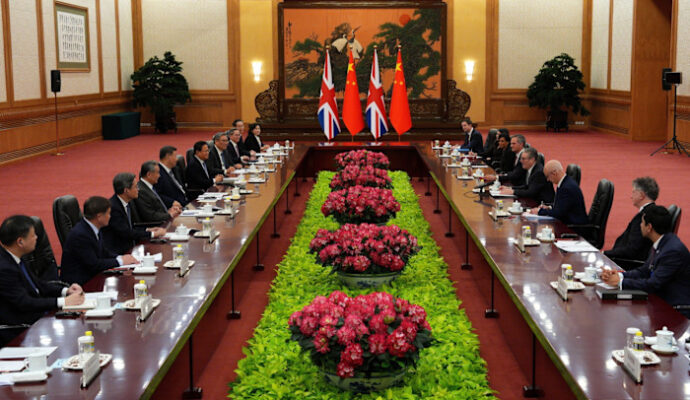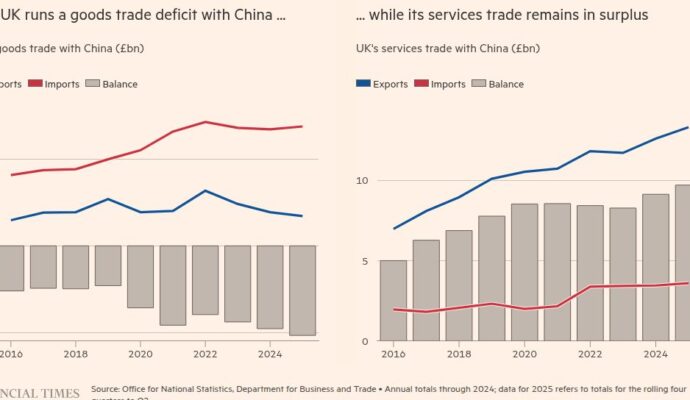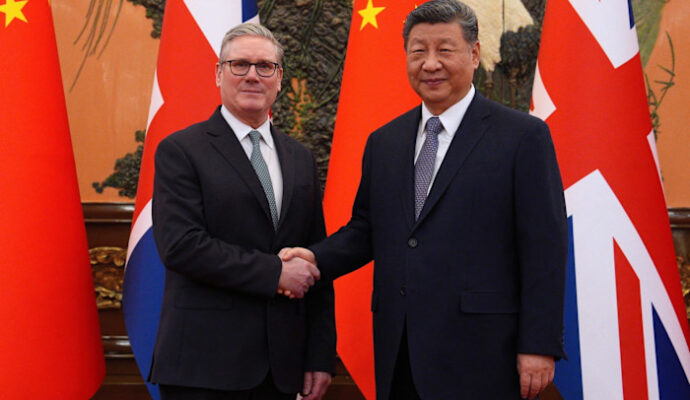Unlock the Editor’s Digest for free
Roula Khalaf, Editor of the FT, selects her favourite stories in this weekly newsletter.
Over pulsating drums, vigorous handclaps and harmoniums, the voices come in waves, each higher than the last. This Sufi singing, called qawwali, is music with a message — peace, tolerance and devotion to God — powerfully transporting listeners to another plane. Lead singer Chahat Ali channels his forceful vocals with his hands, shaking them, cupping them and then spreading them out as he throws up his arms, as if hurling the lyrics into the air.
Chahat Ali is only 21 years old, yet performs like a master. His group, Chahat Mahmood Ali Qawwal, performed at the South Asian Sounds festival at London’s Southbank Centre in March. They are a rare thing: a Pakistani qawwali group now based in the UK. On Saturday, their biggest ever gig awaits them in Trafalgar Square, where they will play in front of thousands of people: Eid in the Square is an annual event organised by the London Mayor’s office to mark the end of the Muslim holy month of Ramadan.
“I am very honoured to perform in Trafalgar Square,” says Chahat Ali. “It’s a big thing to do at a young age.” Is he nervous? “No,” he says with a smile.
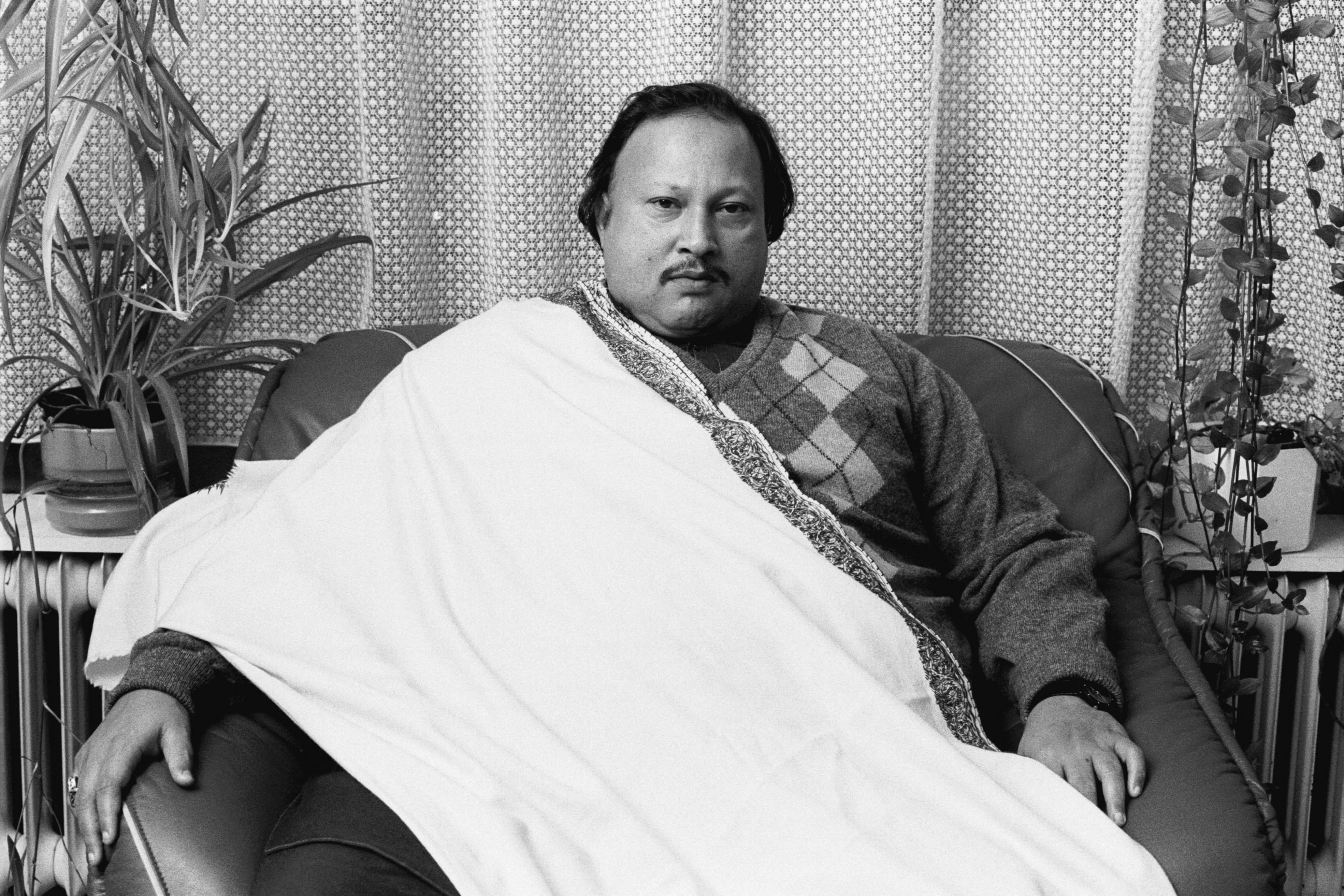
His confidence comes from the fact that he has grown up in a qawwali community, surrounded by singers and musicians who have been working with the masters for years. He started learning to sing at five years old and has a voice that cuts through the ensemble like a rocket. Chahat’s father, Mahmood Ali, who is also a lead singer and the chief harmonium player of the Chahat Mahmood Ali Qawwal group, worked with Rahat Fateh Ali Khan and Faiz Ali Faiz, two of Pakistan’s leading qawwali singers, each for 10 years. Rahat has formally taught Chahat Ali and tied a thread around his wrist in a master-pupil ritual called ganda bandhan, conferring a great honour.
“The message of qawwali is love and peace,” says Mahmood Ali. “It’s about humanity and letting go of egos. It also gets you closer to the Almighty.”
Qawwali is the most popular form of Sufi music and became internationally famous thanks to Nusrat Fateh Ali Khan (1948-97), the larger-than-life singer who performed at the Womad world music festival and recorded traditional albums for Peter Gabriel’s Real World label as well as fusion albums (most notably 1990’s Mustt Mustt). In an unlikely union, the title track was used for a Coca-Cola ad during the 1996 Cricket World Cup. But Nusrat believed that an essential part of his role was to take his message to as many people as possible. In the same spirit, he recorded for Bollywood films.
Islam is central to the music, but just as you don’t need to be Christian to enjoy gospel music or the works of JS Bach, qawwali transcends religious boundaries. It has a strong appeal in the west: on May 27 at the Royal Albert Hall, the Orchestral Qawwali Project brings together singer Abi Sampa with the Royal Philharmonic Concert Orchestra, choirs and dancers, putting qawwali compositions in a new theatrical context.
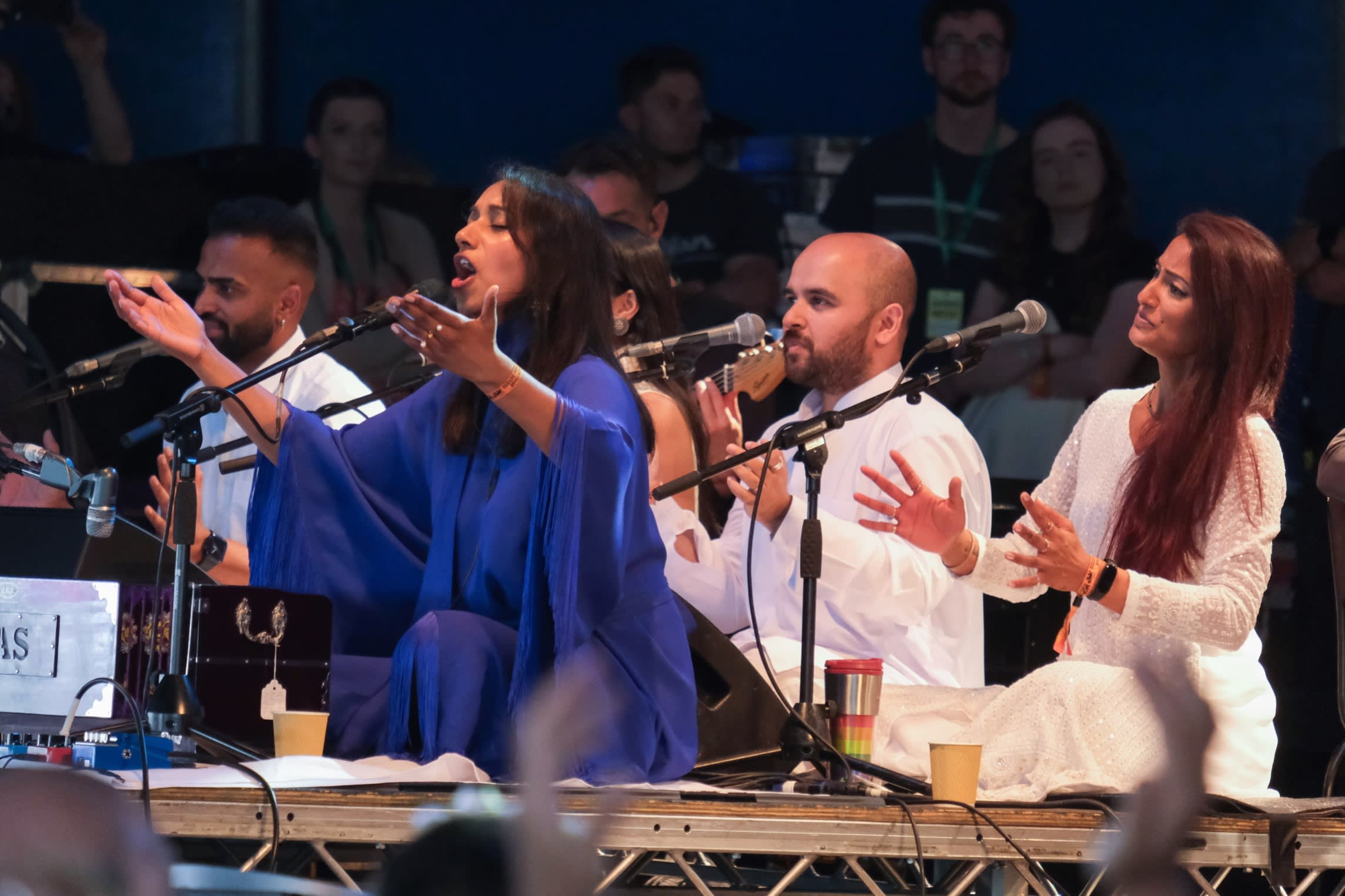
Qawwali is believed to have been created by Amir Khusrau (1253-1325), a talented Sufi poet and composer, and in the Sufi shrines of Pakistan and India, qawwali music can be heard on a Thursday evening, the eve of the Muslim holy day. The shrines of Data Ganj Baksh in Lahore and Baba Farid in Pakpattan in Pakistan and, in India, the Chishti Dargah in Ajmer and Hazrat Nizamuddin Dargah in Delhi are particularly good places to encounter the music.
Sarfaraz Hussain, the tabla player with Chahat Mahmood Ali Qawwal, is lead singer at the shrine of Bulleh Shah, one of the most popular Punjabi poets and saints, in Kasur, Pakistan. He is the third generation in his family to perform there. Does he miss singing at the shrine now he’s based in the UK? “Of course, hugely,” he laughs. “These guys are always having to wipe away my tears!”
At his base in Birmingham, the British-born manager of the band, Abid Iqbal, explains why he decided to bring them over for an extended stay. Although there are no Sufi shrines in the UK to perform at, there is plenty of demand for the band’s music, for example at religious events such as a celebration in Leicester in the presence of Sultan Shah, a syed or descendant of the Prophet Mohammed. There are various mela festivals, such as Big John’s Birmingham Mela, a massive Asian cultural event; a celebration of Shakespeare and the poet-philosopher Mohammad Iqbal on Iqbal’s birthday in November in Stratford-upon-Avon; and a growing market for qawwali at weddings.
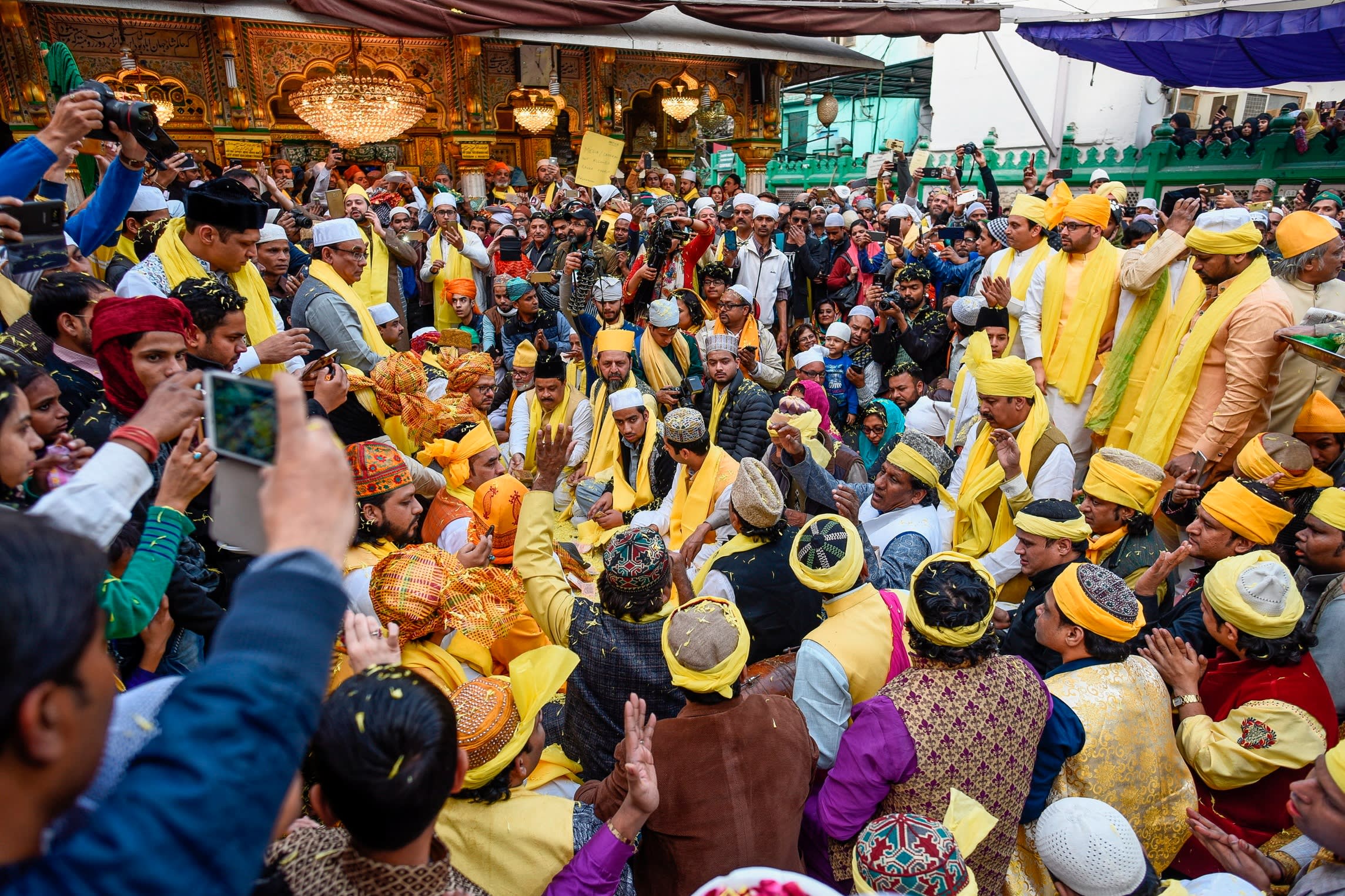
“People have got more money now and sometimes a wedding can be a four-day event,” says Iqbal. The band can also add a keyboard and guitar if people want more contemporary repertoire, dancing or bhangra. They have been invited to perform at Indian weddings too. “Indian audiences are much better listeners and much more attentive than the Pakistani community,” he says lightly.
The set in Trafalgar Square will begin with a traditional sequence of three qawwals, the first to the Almighty, the next to the Prophet and the third to Hazrat Ali, the son-in-law of the Prophet. These will be followed by concise versions of half a dozen songs from the virtuoso piece Tumhe Dillagi (“You Should Forget”) with its rapid-fire scatting
The most popular finale is “Dam Mast Qalandar” (“The Lord in Every Breath”) with a catchy call-and-response refrain chanted by the lead singer and rhythmically repeated by the whole group: the effect is powerful and uplifting. Although far from any Sufi shrine, the Eid celebration in an audience of many faiths and none should be overwhelming.
Eid in the Square, Trafalgar Square, on April 20, london.gov.uk
